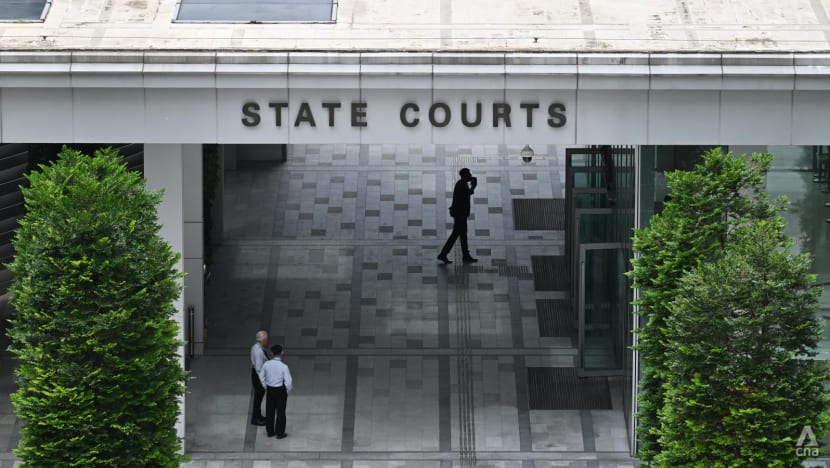Business
Court Fines Chief Investment Officer in Envy Nickel Fraud Case

The chief investment officer of Envysion Wealth Management, Doo Chun Ki, has been fined S$9,000 (approximately US$6,960) for failing to address regulatory issues linked to the Envy nickel trading fraud. The ruling, made on October 7, 2023, stems from Envysion’s involvement in a fraudulent nickel scheme orchestrated by businessman Ng Yu Zhi.
Envysion, which was operating with significant financial backing from Ng, failed to disclose critical conflicts of interest to its investors. The firm primarily generated revenue through referral fees from Envy Global Trading, Ng’s company, which was later revealed to be a fraudulent entity.
Background on Envysion’s Operations
Founded in April 2019, Envysion Wealth Management was licensed by the Monetary Authority of Singapore (MAS) in November 2019 to manage investment portfolios. The firm operated as a family office, managing the Envysion Global Investments VCC, which included the Envysion Commodities Strategy Fund. This fund, launched in May 2020, focused exclusively on investing in nickel receivables offered by Envy Global Trading.
Ng Yu Zhi, who is currently facing criminal charges, misled investors regarding the existence of nickel stockpiles and buyers. Between May 2020 and January 2021, Envysion committed approximately S$56.5 million and US$15.4 million (around S$19.9 million) from its investors into these receivables. However, the promised nickel stockpile did not exist, resulting in substantial losses for investors.
Regulatory Failures and Conflicts of Interest
Doo Chun Ki, a seasoned banking professional, pleaded guilty to one charge of neglect as an officer of Envysion. He acknowledged failing to manage conflicts of interest adequately within the firm, particularly concerning the loans Ng provided to Envysion’s CEO, Shim Wai Han. These loans, totaling S$5.5 million, were critical for the firm’s operations and raised significant concerns regarding Ng’s influence over Envysion.
Despite being aware of the potential conflicts, Doo continued to oversee investments in the nickel scheme. He reported growing discomfort with the arrangement due to insufficient documentation from Envy Global Trading. Nonetheless, due to the firm’s reliance on revenue from the nickel scheme—amounting to S$3.3 million in referral fees in 2020—he felt compelled to maintain these investments.
During the court proceedings, Deputy Public Prosecutor David Koh emphasized Doo’s significant responsibility in failing to address these regulatory failures. The prosecution sought a fine of between S$10,000 and S$12,000, highlighting that while Doo suffered personal losses from Ng’s scheme, his neglect of regulatory obligations contributed to the firm’s collapse.
In total, investors in the Envysion Commodities Strategy Fund faced losses exceeding S$67 million due to the fraudulent operations of Envy Global Trading. The case has raised serious questions about regulatory oversight and the responsibilities of financial professionals in managing conflicts of interest.
-

 Business5 months ago
Business5 months agoKenvue Dismisses CEO Thibaut Mongon as Strategic Review Advances
-

 Lifestyle4 months ago
Lifestyle4 months agoHumanism Camp Engages 250 Youths in Summer Fest 2025
-

 Sports4 months ago
Sports4 months agoDe Minaur Triumphs at Washington Open After Thrilling Comeback
-

 Sports5 months ago
Sports5 months agoTupou and Daugunu Join First Nations Squad for Lions Clash
-

 Top Stories5 months ago
Top Stories5 months agoColombian Senator Miguel Uribe Shows Signs of Recovery After Attack
-

 World5 months ago
World5 months agoASEAN Gears Up for Historic Joint Meeting of Foreign and Economic Ministers
-

 Health4 months ago
Health4 months agoNew Study Challenges Assumptions About Aging and Inflammation
-

 Business5 months ago
Business5 months agoOil Prices Surge Following New EU Sanctions on Russia
-

 Entertainment4 months ago
Entertainment4 months agoDetaşe-Sabah Violin Ensemble Captivates at Gabala Music Festival
-

 Entertainment4 months ago
Entertainment4 months agoBaku Metro Extends Hours for Justin Timberlake Concert
-

 Top Stories5 months ago
Top Stories5 months agoRethinking Singapore’s F&B Regulations Amid Business Closures
-

 Business5 months ago
Business5 months agoU.S. House Approves Stablecoin Bill, Sends to Trump for Signature









